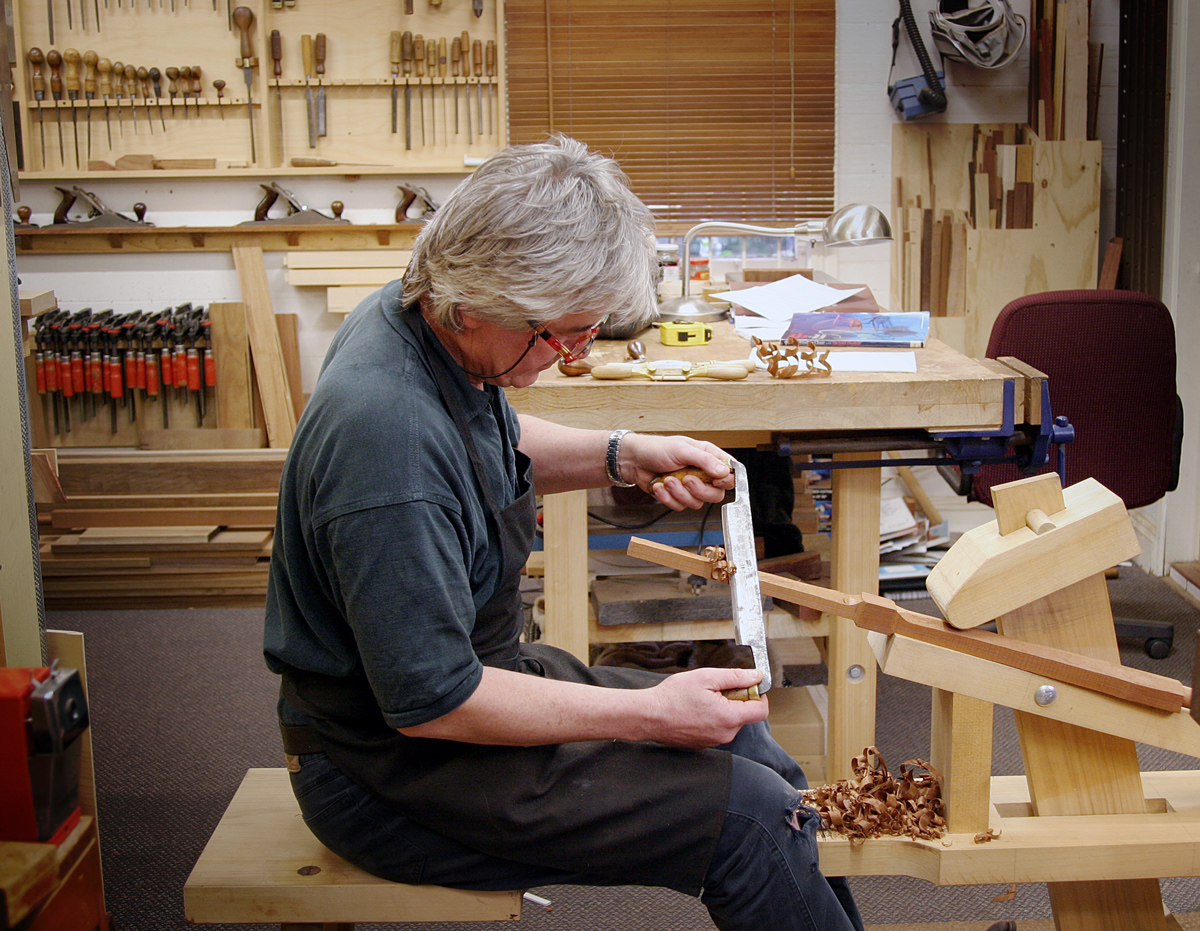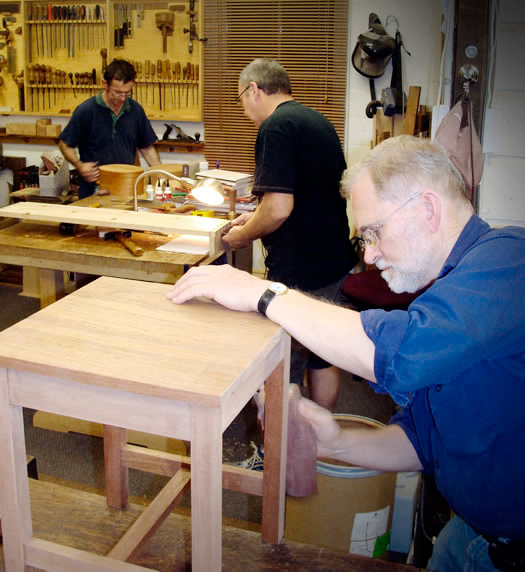Woodworking classes
Woodcarving classes
Please note: I am no longer offering classes in furniture making. I am ONLY teaching wood carving.
Woodcarving has many advantages
1. You can do it anywhere.
2. You only need a few tools.
3. You don’t need any machinery.
4. You don’t even need a workshop.
5. Therefore carving is possibly the least expensive branch of woodwork.
6. It also means it is not as dangerous as other forms of woodwork.
7. You don’t need a lot of strength or even mobility.
8. You can choose from many different types and styles of carving.

Historically, wood carving, like furniture making, blacksmithing, masonry, coppering or making wheels, was a trade that was learned through a system of apprenticeship.
It did not require artistically gifted children, but instead was undertaken by ordinary children (or young adults) from (usually) working class families. It is easy to lose sight of this simple fact when we wonder whether or not we can learn it.
Like any craft, it does take time to learn. I think one of the main requirements of success as a carver is that you enjoy the feeling of cutting wood with a sharp tool. This is perhaps the most important thing you learn in your first class.

How the classes work
The classes are continuous. There are no terms. When you join a class, you will continue in that class until you decide to stop. You could be in the class for one week, or for 20 years.
The classes cost $100 for 3 hours, and that includes all the tools you need and (usually) the wood.
Payment is per calendar month, paid at the beginning of each month. If you join a class part way through a month, you’ll pay either for the remainder of the month, or for a smaller number of classes if you prefer.
Please note that once you join a class you must pay whether you come or not. If you cannot attend (and this usually happens sooner or later) you can make up this missed class by coming to one of the other classes either in the same week or at a future time if you are still attending classes.
This can seem harsh at first, but makes sense if you compare it to booking a hotel room, the hotel cannot give it to anyone else if you don’t turn up. You have paid for a room. They have supplied it. Whether or not you use it is up to you. Hard experience has forced probably all those who offer classes to adopt this system. Otherwise attendance can quickly become a matter of convenience. If it is cold or wet, or you just don’t feel like it, you can simply not come. But while that is wonderful for you, it just doesn’t work for me.
But I don’t want you to pay for something you don’t get, so I will do what I can to help you make up any classes you miss.


